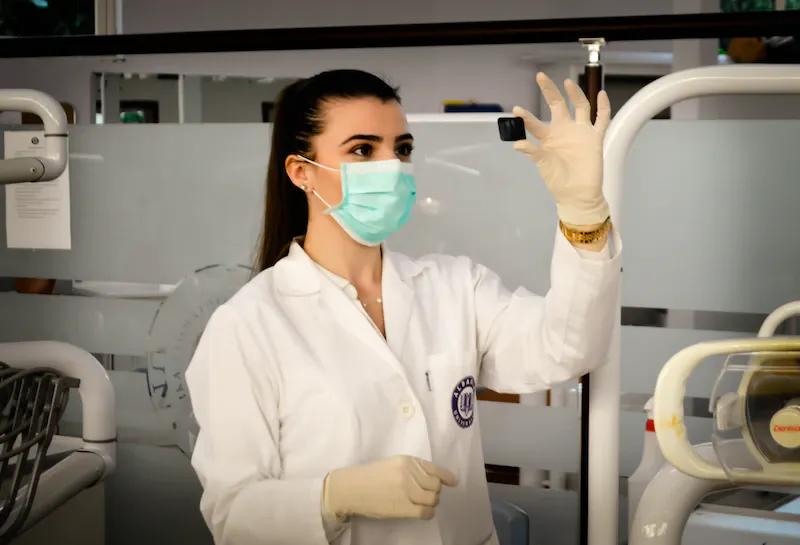Love in Sales: Releasing the Power of Passion and Strategy

Why Sex and Sales Go Hand in Hand
Have you ever stopped to think about the similarities between sex and sales? It may seem like an odd comparison, but in reality, they have a lot in common. In fact, the speaker in a video I recently watched argues that sales skills are some of the best skills you can have in life because they are the same skills you need to be successful in romantic relationships.
The speaker acknowledges that the word “sales” often has a negative connotation because we associate it with conmen in polyester suits who will say anything to make a sale. But the truth is, we all have sales ability within us. Think about the last time you wanted to entice someone to be intimate with you - that’s sales. The difference is, we often don’t realize we’re using sales techniques in our personal lives because we’re not consciously trying to make a sale.
So, why do sex and sales go hand in hand? It all comes down to the fact that both involve persuasion and desire. In sales, your goal is to persuade someone to buy your product or service by showing them how it can fulfill their desires or solve their problems. In romance, your goal is to persuade someone to be with you by showing them how you can fulfill their desires or make their life better.
The speaker also talks about the importance of slowing down in both sex and sales. Just as rushing into the main act can be a turnoff in a romantic encounter, rushing into the sale without building up customer interest can result in lost sales.
Overall, the speaker’s argument that sex and sales go hand in hand is an interesting one. While it may seem like a stretch at first, the similarities between the two are actually quite clear. By applying sales techniques to our personal lives and vice versa, we can become better communicators, persuaders, and ultimately, more successful in all aspects of life.
The Negative Connotation of Sales and How to Overcome It
When we think of salespeople, we often think of pushy, dishonest individuals who will do anything to make a sale. It’s no wonder that the word “sales” has a negative connotation in our society. However, as the speaker in the video I watched points out, this negative view of sales is not entirely accurate.
While there certainly are salespeople who will lie and deceive in order to make a sale, this is not the norm. In fact, the speaker argues that the best salespeople are those who are honest, ethical, and genuinely care about their customers. These salespeople are focused on building relationships with their customers and helping them find the solutions they need, rather than just making a quick sale.
So, how can we overcome the negative connotation of sales? The speaker suggests that the key is to focus on building trust with your customers. This means being honest, transparent, and always putting your customers’ needs first. By doing so, you can create a positive reputation for yourself and your business that will help to overcome any negative perceptions of sales.
Another way to overcome the negative connotation of sales is to think of it as a service, rather than a transaction. In other words, instead of focusing solely on making a sale, focus on how you can help your customers solve their problems and achieve their goals. This shift in mindset can help to build trust with your customers and create a more positive perception of sales in general.
Overall, while the negative connotation of sales is certainly a challenge to overcome, it is not impossible. By focusing on building relationships with your customers, being honest and transparent, and thinking of sales as a service rather than a transaction, you can change the way people perceive sales and become a more successful salesperson in the process.
The Importance of Slowing Down in Sales and Romance
In both sales and romance, slowing down can be key to achieving success. According to the speaker in the video I watched, many salespeople suffer from what he calls “premature presentation disorder.” This means that they jump right into the main act - trying to close the sale - without taking the time to warm up their customer and build interest in their product or service.
In order to overcome this, the speaker suggests taking a cue from the world of romance. Just as in romance, where slowing down and building anticipation can lead to a more satisfying experience, in sales it’s important to take the time to build a relationship with your customer and create a sense of desire for your product or service.
The speaker provides an example of a sales rep named Brad, who was struggling to make sales in the medical device industry. Brad was focused solely on making the sale, and would often skip the warm-up phase of the sales process. However, after a chance encounter with an attractive woman in a bar, Brad learned the importance of slowing down and focusing on building a relationship with his customers.
By asking questions and taking a genuine interest in the woman’s life, Brad was able to build a rapport with her and create a sense of desire for his company’s products. This same approach can be applied in the world of sales - by taking the time to build relationships with your customers and create a sense of desire for your product, you can increase your chances of making a successful sale.
Overall, whether in sales or romance, slowing down and building anticipation can be key to achieving success. By taking the time to warm up your customer, build a relationship, and create a sense of desire for your product or service, you can increase your chances of making a successful sale and creating a satisfied customer.
Premature Presentation Disorder: The Salesperson’s Biggest Mistake
In sales, one of the biggest mistakes a salesperson can make is having Premature Presentation Disorder (PPD). This is when a salesperson jumps straight into presenting their product or service without taking the time to build interest or rapport with the customer.
Just like in romance, skipping the foreplay can lead to a quick end. In sales, it can lead to lost opportunities and lost sales. When a salesperson jumps straight into the pitch, the customer can quickly become disinterested and shut down the conversation.
The key to avoiding PPD is to take the time to build rapport with the customer. Sales is not just about selling a product or service; it’s about building relationships. By taking the time to get to know the customer, a salesperson can tailor their pitch to the customer’s needs and wants, making it more likely to result in a sale.
In the video, the speaker tells the story of a sales representative named Brad who suffered from PPD. Brad made 11 attempts to call on doctors but only got to see four of them. He presented his product the same way to each of them, and each time he was shut down. When the speaker and Brad went to a bar, Brad was distracted by an attractive woman and focused on getting to know her. He took the time to ask her questions and show genuine interest in her, and it led to a successful conversation. The speaker used this example to show Brad the importance of taking the time to build relationships with customers instead of jumping straight into the pitch.
Salespeople should slow down, build rapport with customers, and take the time to understand their needs and wants before presenting a product or service. By doing this, they can avoid PPD and increase their chances of making a sale.
The Poodle Analogy: How Salespeople Can Learn from Their Dating Skills
In the video, the speaker uses a poodle analogy to explain how some salespeople jump straight to trying to close the sale without properly “romancing” the customer. He suggests that salespeople can learn from their dating skills and become more successful in sales by slowing down and focusing on the customer’s needs and desires.
The poodle analogy refers to a friend’s dog that would immediately grab the speaker’s leg and try to mate with them without any prior buildup or seduction. The speaker likens this behavior to that of some salespeople who skip the foreplay and try to immediately close the sale, which can turn off the customer and lead to a failed interaction.
Instead, the speaker suggests that salespeople should slow down, become strategic, and focus on the customer’s needs and desires. By asking questions and revealing information about the customer, the salesperson can position themselves as an alternative, better option to what the customer currently has. This approach can lead to a successful sale and a satisfied customer.
The speaker emphasizes that the same skills used in dating and romance, such as passion, desire, and anticipation, can be applied to sales. By creating a sense of excitement and anticipation, the customer will be more likely to want to close the deal. Salespeople should also watch for buying signals from the customer, which can indicate when it is the right time to close the sale.
From bad sales calls to successful coffee dates: a real-life example
The speaker shares a real-life example of a sales rep named Brad who was struggling to make sales calls. After making 11 unsuccessful attempts to call on doctors, Brad was at risk of losing his job. So, the speaker and Brad went to a bar to unwind, and Brad became distracted by an attractive woman who walked in. He went up to her and asked her if she wanted to meet a nice guy who doesn’t lie, steal or cheat, but she told him she had a boyfriend. However, instead of giving up, Brad asked her what she looks for in a man and found out more about her. He ended up getting her number and setting up a coffee date, where he learned more about her relationship with her boyfriend and what she wanted in a partner.
The speaker emphasizes that Brad’s success in sales came from his ability to be strategic and focus on the customer’s needs and desires, just like in a successful romantic encounter. Instead of trying to hump the customer’s leg like a poodle, Brad took his time and focused on building a relationship with the customer, just like he did with the woman at the bar. By doing this, he was able to position himself as an alternative and better option for the customer.
The speaker concludes that salespeople can learn from their dating skills and be successful in sales by being strategic, focusing on the customer’s needs, and taking their time to build relationships. Brad’s success in turning a bad sales call into a successful coffee date is a great example of how sales skills can be applied in real life situations.
The strategic approach to selling: revealing information and positioning yourself as the better alternative
The final topic covered in the video is the strategic approach to selling. The speaker stresses the importance of revealing information about the prospect’s needs and desires before presenting a solution. This involves asking questions and actively listening to the answers, rather than simply delivering a rehearsed sales pitch.
The speaker also emphasizes the importance of positioning yourself as the better alternative to the competition. This means understanding the prospect’s decision-making process and tailoring your approach accordingly. By presenting yourself as a strategic partner who can solve the prospect’s problems, rather than just a salesperson trying to make a sale, you can build trust and establish a long-term relationship.
To illustrate this approach, the speaker shares an anecdote about a sales call he made to a prospect who was initially resistant to his pitch. By asking questions and actively listening, he was able to reveal the prospect’s concerns and offer a solution that addressed those concerns. He also positioned himself as a better alternative to the competition by highlighting his experience and expertise in the industry.
Overall, the strategic approach to selling involves taking the time to understand the prospect’s needs and desires, positioning yourself as a trusted partner, and offering a solution that addresses their specific concerns. By following these principles, salespeople can build long-term relationships with their prospects and increase their chances of closing deals.
Think Like a Great Lover: How Passion and Desire Can Increase Sales Success
In the world of sales, it’s important to remember that we are dealing with people, not just transactions. Passion and desire play a crucial role in making a sale, just as they do in a romantic relationship. In this section, we’ll explore how salespeople can tap into these emotions to increase their success.
When we are passionate about something, we naturally radiate enthusiasm and energy. This excitement is contagious and can help to build trust with potential customers. It’s important to convey this passion in our interactions with customers, whether it’s through our tone of voice, body language, or the words we choose.
In addition to passion, desire is another powerful emotion that can be used to our advantage in sales. When we desire something, we are willing to work harder and make sacrifices to obtain it. As a salesperson, it’s important to understand the desires and motivations of your customers, so that you can position your product or service in a way that speaks to those desires.
One way to tap into desire is to use scarcity and exclusivity to create a sense of urgency. For example, offering a limited-time discount or a special edition of a product can trigger a customer’s desire to act quickly, before they miss out.
It’s also important to remember that desire is not just about the product or service itself, but about the experience and emotions that come with it. By creating a positive experience for the customer, we can tap into their desire for pleasure and satisfaction.
Overall, by thinking like a great lover, we can tap into the powerful emotions of passion and desire to increase our sales success. By conveying our passion, understanding our customer’s desires, and creating a positive experience, we can build trust and motivate customers to act.
Conclusion
In conclusion, the world of sales and the world of romance may seem vastly different, but there are many similarities between the two. By applying certain principles and tactics from the dating world to sales, salespeople can become more successful in their field.
One important lesson is the power of slowing down. Taking the time to build a relationship and understand a client’s needs can lead to more successful sales in the long run. Additionally, avoiding “premature presentation disorder” and instead focusing on listening and understanding can help build trust and rapport with clients.
Salespeople can also learn from the “poodle analogy,” recognizing that it’s not just about making a sale but about creating an emotional connection with the client. And by using the strategic approach, salespeople can reveal important information and position themselves as the better alternative to their competitors.
Finally, passion and desire are crucial components in both sales and romance. By channeling their passion for their products and services, salespeople can convey that enthusiasm to clients and make the sale more appealing.
Overall, by using these principles and tactics from the dating world, salespeople can become more successful in their field and build long-lasting relationships with clients. By focusing on building emotional connections, understanding clients’ needs, and conveying passion and enthusiasm, salespeople can take their careers to the next level.




